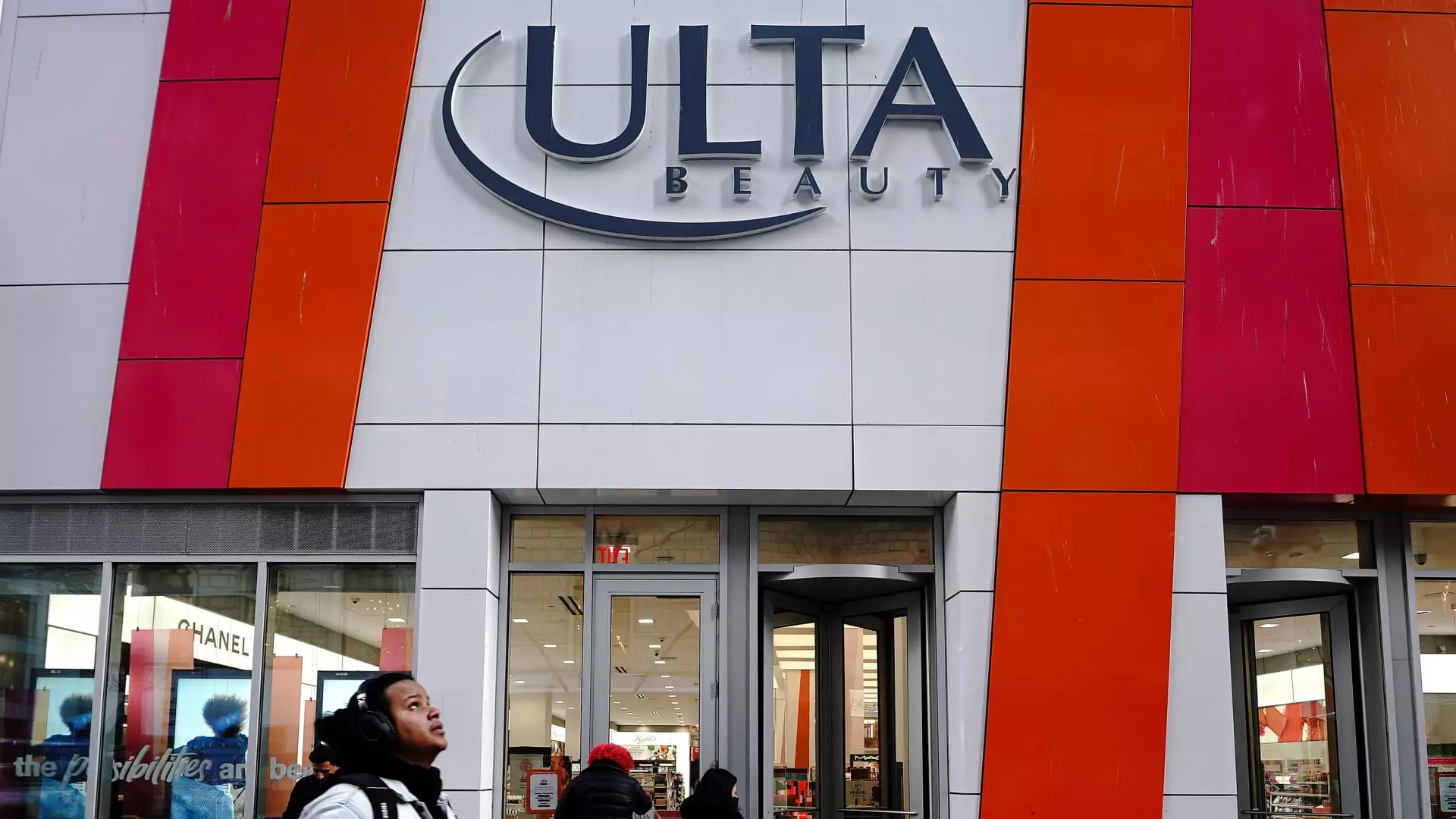In the fast-paced corporate world, few elements are as influential as innovation, and recent movements show that automation is no longer just a trendy buzzword—it’s a lifeline for companies in today’s dog-eat-dog landscape. UiPath, a standout in the automation software sector, recently reported a staggering 12% share price surge following the release of its first-quarter figures. Its results not only surpassed FactSet estimates but also reflected a clear upward trajectory with a revised guidance that predicts quarterly revenues could reach between $345 million and $350 million, significantly above analysts’ expectations. This raises an intriguing question: Could investing in automation technology be the most prudent decision you make in a volatile market?
The operational strength demonstrated by UiPath sends a powerful message; as traditional business models falter under economic strains, those who embrace automation stand to gain significantly. This positions UiPath at the forefront, where adaptability is synonymous with survival in the business ecosystem. Therefore, for forward-thinking investors, prioritizing companies that embrace innovation may yield attractive dividends.
Beauty Is More Than Skin Deep
Ulta Beauty has turned a financial corner worth celebrating, displaying a remarkable 9% rebound in its stock as it raised its annual profit forecast. The beauty retailer’s success story is rooted in strategic decision-making—particularly through the launch of celebrity-owned brands that stirred consumer interest. Lower inventory losses illustrate a meticulous approach to supply chains, but the real dynamism lies in their understanding of market wants.
At a time when competitors may struggle to retain consumer loyalty, Ulta demonstrates that tapping into cultural zeitgeists—like celebrity endorsements—can be a potent strategy. In an economy where discretionary spending is a gamble, understanding your audience can give brands a crucial edge. Observers cannot help but see a compelling narrative unfolding around Ulta, one that other retailers should heed: Know your consumer and dare to innovate.
Fashion’s Dismal Reality: Failure to Adapt
Contrasting successes in tech and beauty, the apparel sector presents a cautionary tale. American Eagle’s stock slid 7% after reporting an adjusted loss that exceeded estimates, despite revenues meeting expectations. In the case of Gap, a staggering 13% decline was triggered by flat sales forecasts in a retail environment that demands growth. Both companies serve as poignant reminders of the dire consequences for brands that neglect timely adaptations in style and consumer preferences.
The fashion industry often lives and dies by trends, with consumer sentiment shifting more rapidly than companies can react. As evidenced by these declines, it’s becoming clear that simply breaking even is no longer an acceptable benchmark for success. Investors should carefully consider whether brands have the agility to respond to real-time market demands before committing funds.
A Cautionary Tale in Biopharma
While tech and beauty sales soar, biopharma giants like Regeneron Pharmaceuticals and Sanofi displayed a stark reminder of the sector’s unpredictability. A 10% drop in Regeneron’s stock—coupled with a 4% decrease for Sanofi—after mixed results for their shared respiratory drug, itepekimab, illustrates the volatility inherent to drug development. Late-stage trials are notoriously unpredictable; when results falter, investor confidence can collapse almost instantaneously.
The implication is clear: while biopharma holds tremendous potential for profit, it also harbors significant risks that need to be managed with extreme caution. Companies that rely on breakthrough therapies must communicate transparently with investors regarding trial outcomes, lest they destroy shareholder value with unexpected failures.
The Icy Waters of Vacation Rentals
Airbnb faced a sobering 3% downturn after a downgrade to “sell” by Truist Securities, emphasizing soft summer leisure trends. A company operating in an industry so heavily influenced by consumer spending, particularly in leisure, faces acute challenges in adjusting its offerings to the shifting desires of potential renters.
The downgrade underscores a crucial insight: when investing in sectors sensitive to temporal shifts (like holidays or economic conditions), it’s paramount to scrutinize broader market trends rather than focusing solely on quarterly reports. Trends are often more telling than numbers, and discerning investors would benefit from digging deeper into these anomalies.
The corporate world is at a fascinating crossroads. As automation gains influence, certain sectors thrive while others languish beneath the weight of their outdated strategies. Understanding which markets are evolving and which are rapidly declining is essential for any investor looking to navigate this ever-complex landscape.

